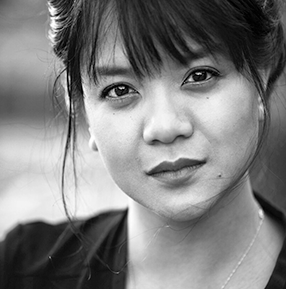Lament of Submerged Persons
Mudslide in Rio de Janeiro state...: in the early hours of Saturday, following two days of heavy downpour. A boulder slid down a slope and hit a group of houses in the city of Niterói. Volunteers joined rescuers in silence so that any survivors could be heard.
—BBC News, November 11, 2018
It's as if the marrow of the earth mistook us
for part of itself, our limbs its own settling
form, like we have sunk into chairs and taken as us
our tight-tucked legs, our bellies. Or known the settling
head of our daughter to sternum as an uncleaved us,
one sleeping self inside a woken self. The settling
mud around, its heave, seems simple now: is softening us
into dense dark shape, and we are settling
our gauges too: voice from volume, sediment, shadow, us
from the spaces we lived. Silence settling
who we thought we were, was us,
into this all-consuming lack. Nothing settling
a choke around the circumference of light, drawing us
in. We no longer know if our eyes are open, only settling:
(where our daughter sank her pillow—her hair—and us
somewhere too), though we're yielding there to this, settling
aphotic loss, how we once lived what we could bear: us,
her, no more. Now there is weight so true, a settling
so whole, we could die in its lightness: it exiles us
to formless terror—no blanket, no bed, but settling.
If we could remember that once a throat was us
inside a body. Only: here, or here, inside this settling,
a hint of shade, almost like memory: the sound of us.
If we could just know again our mouths. We
could part the earth with our voices, ask to be heard.
Copyright © 2019 by Sasha Pimentel. Originally published in Poem-a-Day on July 19, 2019, by the Academy of American Poets.
“I thought as a poet I knew of silence and the breakage of words against it. Then I saw a photo of a line of teenage volunteers hefting buckets of rubble and mud after a landslide in Brazil. Such weight held in their listening for one another, and the need to call out between neighbors and the families who one minute were sleeping, and in another were buried. Martín Espada tells us we are responsible to the unspoken places around us, the people who live and die in those places who so ‘become the provinces of poetry,’ so I tried to hear in the poem how to sing it from the terminal chorus of each couplet from ‘us / settling’ to ‘We / heard’ or ‘We / ask to be heard.’ But in imagining a gravity—not of earth, but of a darkness and a silence which could overwhelm, and what against that gravity a person could cling to—I kept thinking of Esme, my stepdaughter, and how to remember myself, I would cling to her.”
—Sasha Pimentel

